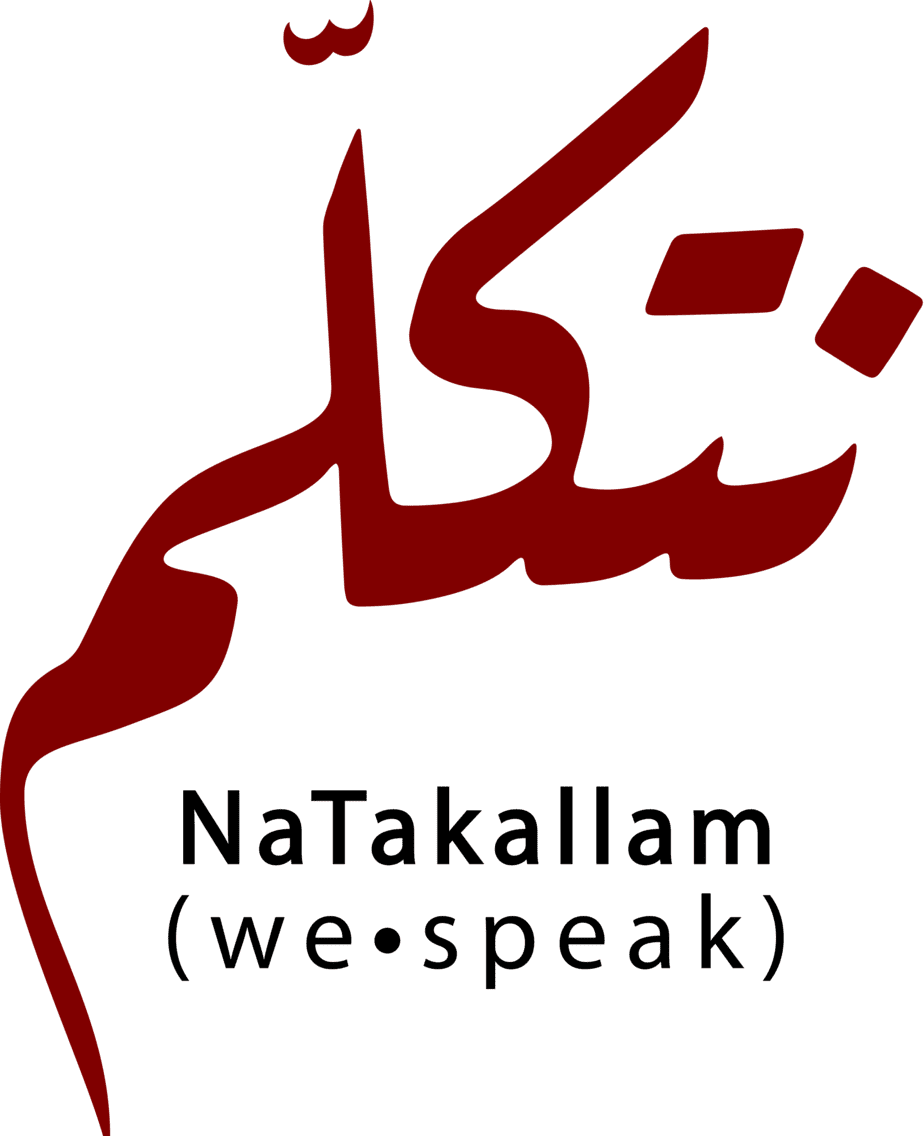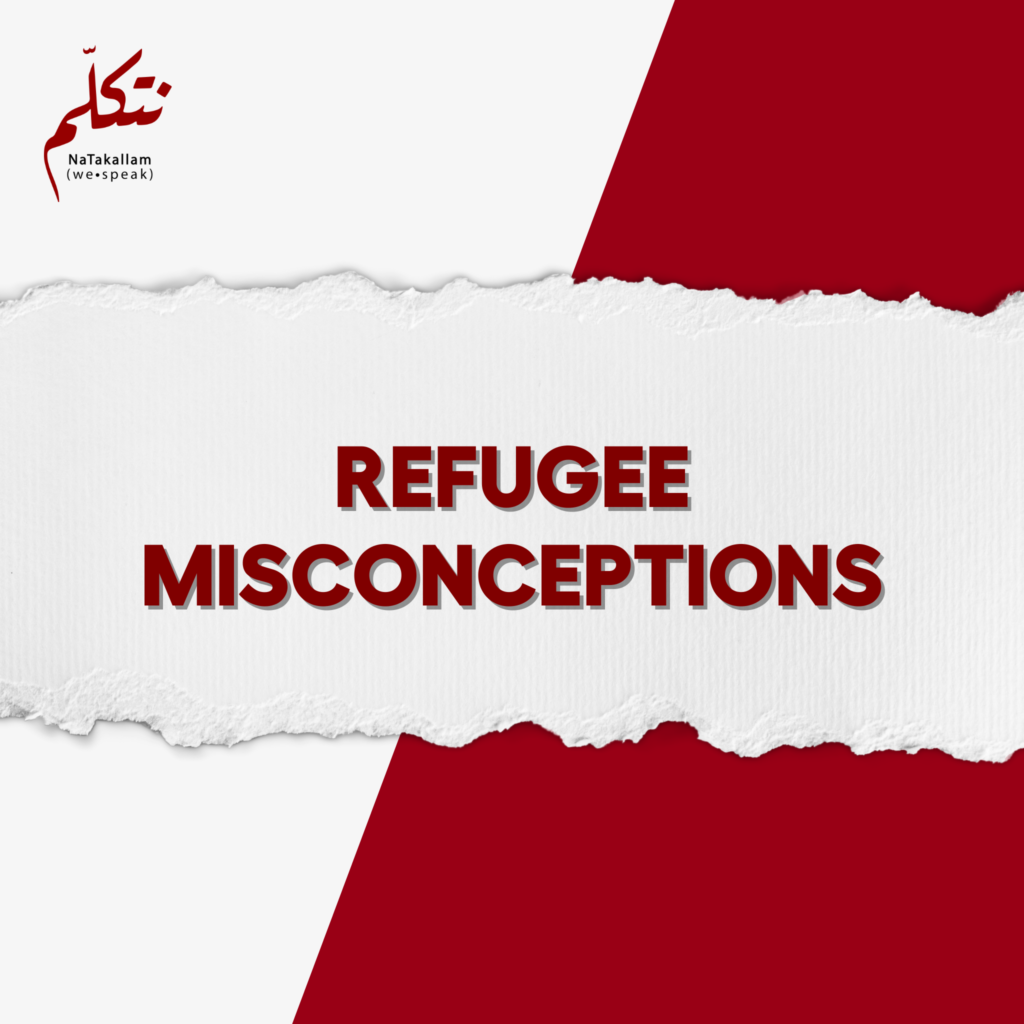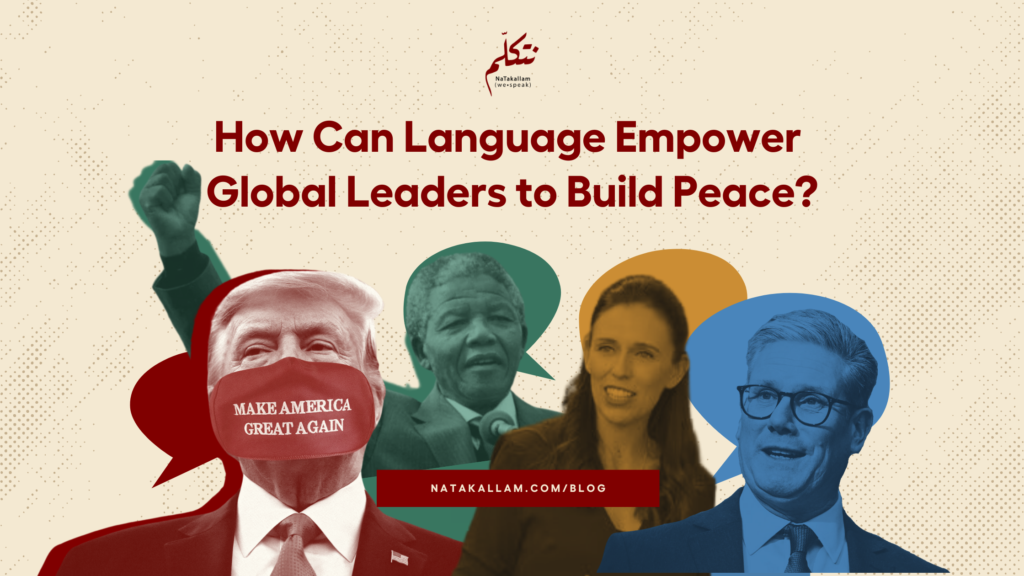Breaking Through Media Bias: The Truth About Refugees and Deportation
“We are facing the biggest global migration crisis of our time, and the current global resettlement and humanitarian systems are broken.”
These words from Aline Sara, CEO and co-founder of NaTakallam, reflect a troubling truth. In just over a decade, the global refugee population has tripled. Today, 1 in every 69 people worldwide is forcibly displaced.
But becoming a refugee is not a choice. It’s a last resort.
Leaving your home, your family, your memories behind – often with little more than a bag and a name – is never an easy decision. Yet, refugees are often reduced to numbers and treated as liabilities, stripped of their stories and humanity.
At NaTakallam, we believe in telling a different story. One that centers dignity, potential, and shared humanity.
This article addresses two prevalent media biases and offers facts, context, and lived experiences to challenge these misconceptions. Because shifting the narrative doesn’t just help refugees – it helps build stronger, more empathetic societies for all.
Media Bias #1: “Refugees are a burden to society.”
What we say: Refugees and displaced individuals are not only human beings worthy of dignity and respect, but also active contributors to our societies – bringing skills, knowledge, languages, and cultures that enrich our communities.
Too often, media and political discourse dehumanize refugees, portraying them as threats or burdens. But research shows that the real problem is perception, not reality.
Between 2005-2019 alone, refugees in the U.S. have contributed more in taxes than they received in public assistance – amounting to a net fiscal benefit of over $120 billion.
Yet more than half of the 36.4 million refugees registered by UNHCR in 2023 live in countries that restrict access to legal work. This is a missed opportunity, especially at a time when labor shortages are hitting many economies hard.
Mainstream media often fails to highlight refugees’ positive impact or amplify their voices – instead, it reinforces dominant narratives rooted in fear and misinformation. For instance, a study by Columbia University analyzing refugee-related media coverage found a strong focus on perceived threats, whether to cultural identity or national security.
This skewed portrayal drives division and populism: In fact, the strongest support for anti-immigration policies in countries like the USA and across Europe often comes from areas with the least contact with refugees. The less we know, the easier it is to dehumanize.
But understanding starts on a personal level. Refugees aren’t a monolith. They’re educators, builders, parents, students, and dreamers. And most of them never wanted to leave in the first place. A study highlighted by The Jordan Times, for instance, found that over 80% of surveyed Syrians – a group among the largest displaced populations globally – expressed a desire to return home when it’s safe.
NaTakallam was born from this understanding in 2015. As more Syrians sought refuge in Lebanon, they faced impossible barriers to participation: no legal work, no path to inclusion. Our social enterprise offered a solution – allowing them to earn income by teaching languages and sharing their culture with learners around the world.
We’ve since worked with 850+ Language Partners from conflict-affected regions who, beyond their hardships, bring resilience, insight, and skills. They contribute meaningfully to global classrooms and companies. And they reshape perceptions every day.
We need to stop seeing refugees as a single, faceless group. Each individual brings unique experiences and strengths that can enrich our societies. And the data is clear: diverse teams perform better.
Media Bias #2: “Deportations must be executed at all costs.”
What we say: Mass deportations are neither sustainable – nor humane.
In the name of national security and economic stability, some political voices push for sweeping deportation measures. But the reality is far more complex.
Because deportations aren’t just policies on paper. They are people, pulled from their communities, from jobs they’ve held for years, from children they’ve raised. In the U.S. alone, 5.1 million American children live with at least one undocumented parent. For these families, every knock on the door can mean the start of a nightmare: a breadwinner gone, a family torn apart, a future thrown into uncertainty.
Studies show that this limbo – the fear of deportation – causes profound mental health impacts: anxiety, depression, PTSD, and self-harm, also among children.
And while the emotional cost is immeasurable, the financial one isn’t far behind. A CBS investigation estimated it would cost the country $88 billion to deport just 1 million people a year. In addition to that, around $1.7 trillion in projected GDP loss are expected due to the removal of essential workers in industries like construction, agriculture, and hospitality.
Despite these facts, the imagined security threat behind these policies has never been consistently backed by evidence. What it does create is trauma, loss, and social fragmentation.
And the execution and effectiveness of deportations is far from functional: countries often refuse to receive returnees. Enforcement personnel lack adequate language and cultural training. Detention conditions are frequently inhumane, especially for pregnant women, LGBTQ+ individuals, and other vulnerable groups.
At NaTakallam, we see the impact of displacement every day. That’s why we launched our Refugee Voices sessions – live, online conversations that connect displaced individuals with classrooms, workplaces, and communities around the world. These sessions don’t just educate – they humanize. They replace fear with connection, and stereotypes with understanding.
Because a society without immigrants doesn’t mean more safety. It means less exchange and understanding, less innovation, and less of the humanity that makes us whole.
So, how can you support?
In a world where the protection of vulnerable people and the strength of diverse, welcoming communities can no longer be taken for granted, each of us has a role to play.
Whether it’s:
• Welcoming newcomers into your community,
• Challenging media bias and misinformation,
• Supporting refugee-led organizations,
…every action matters.
And if you want to directly support refugee livelihoods, consider bringing NaTakallam into your classroom, office, or home. Through language learning, cultural exchange, and professional translation services, you can help create meaningful opportunities and connection.
Whether you’re interested in Arabic, Armenian, French, Kurdish, Persian, Russian, Spanish, or Ukrainian, our native-speaking Language Partners are here to guide you on your linguistic journey. Book your free trial here.
Looking for group options? Explore our Refugee Voices language learning and cultural competency sessions for your community, classroom or workplace.
ABOUT THE AUTHOR: Zeina Abou Taha is an intern at NaTakallam, currently transitioning from a career in IT consulting to journalism. With an academic background in entrepreneurship and innovation, and a passion for exploring the world, Zeina spends her free time traveling, connecting with people from diverse cultures, and writing for her personal blog.
Breaking Through Media Bias: The Truth About Refugees and Deportation Read More »










